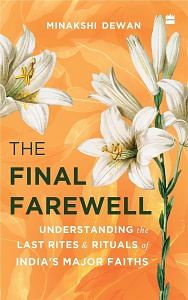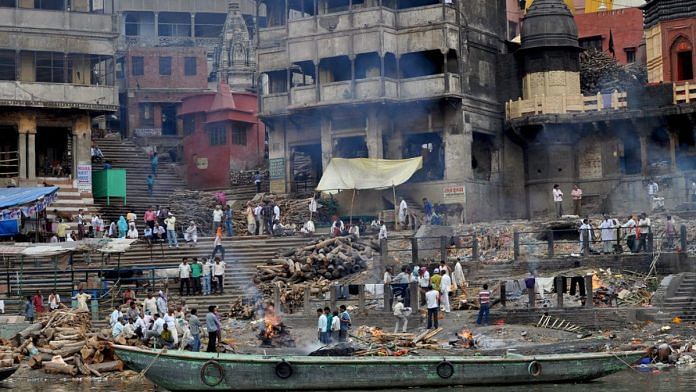My grandmother used to say that death is a sad occasion, yet the aggrieved family has to host relatives and friends. Therefore, like other rites of passage, death rituals involve expenditures. While talking to people, I realized how cultural norms and practices impact death spending.
For example, in many communities holding a communal feast is a rule, not a choice. Besides, death is an emotional occasion where families tend to overspend more than their means. But unfortunately, these societal expectations push poor people to overspend—leading to debt. For instance, while working with rural communities, I have encountered cases where families had to pawn their jewellery to host a mrityu bhoj for the entire village.
Interestingly, for some, it’s an event to display wealth by engaging in extravagant rituals. For example, I remember someone telling me how their family hired a leading flower company to decorate the hearse van. Through my conversations with funeral directors, I gathered how some clients demand over-the-top prayer meetings highlighting their social standing. Through this section, I endeavour to present general death-related expenses and the determining factors based on my conversations with ritual specialists and families. I have broadly classified these expenses into: funerals, service providers’ fees, and organizing prayer meetings or feasts. Calculating the exact cost was difficult because of the unorganized nature of the sector.
Also read: Sachin Tendulkar thought of retiring in 1997 after this Test match against the West Indies
However, `10,000–15,000 is the minimum amount spent just on the cremation/burial. Besides, these are other expenses like organising a funeral feast. Families incur additional costs like donating to hospitals, schools, or sansthas (institutions) to pay shraddhanjali (tribute) to their deceased relatives. In addition, Daan is considered a crucial part of funeral rites among Hindus. Moreover, sometimes repatriation services also add to the expenses. An obituary in the newspaper can cost between `1000- 1,00000 depending on the message size and the newspaper’s circulation.
In India, the community primarily leads funeral arrangements, unlike in the west. On that side of the world, last rites are left to the funeral directors. But, according to Caitlin Doughty, a famous mortician, the over-dependence on the death industry has a flip side. Due to the corporatization and commercialization of death care, the western world has fallen behind when it comes to proximity, intimacy and rituals around death and deceased loved ones. However, funeral arrangements are still family and community-run affairs in India.
I remember how everyone came together to organize my papa’s funeral. While Sharma called the tent vendor, the Guptas contacted the refrigeration service. Furthermore, the neighbours supplied food for mourning members after the cremation. ‘In Varanasi, no one would like the body of the loved one to be handled by strangers. So neighbours come together and organize everything,’ said Amrit, a tourist guide from Varanasi. The professional death care industry has mushroomed in India in the last decade. These death care services manage everything—from organizing funerals to arranging prayer meetings and feasts. However, unlike a billion-dollar industry in the West, they are still gaining ground in India.
 This excerpt from Minakshi Dewan’s ‘The Final Farewell: Understanding the Last Rites & Rituals of India’s Major Faiths’ has been published with permission from HarperCollins India.
This excerpt from Minakshi Dewan’s ‘The Final Farewell: Understanding the Last Rites & Rituals of India’s Major Faiths’ has been published with permission from HarperCollins India.



